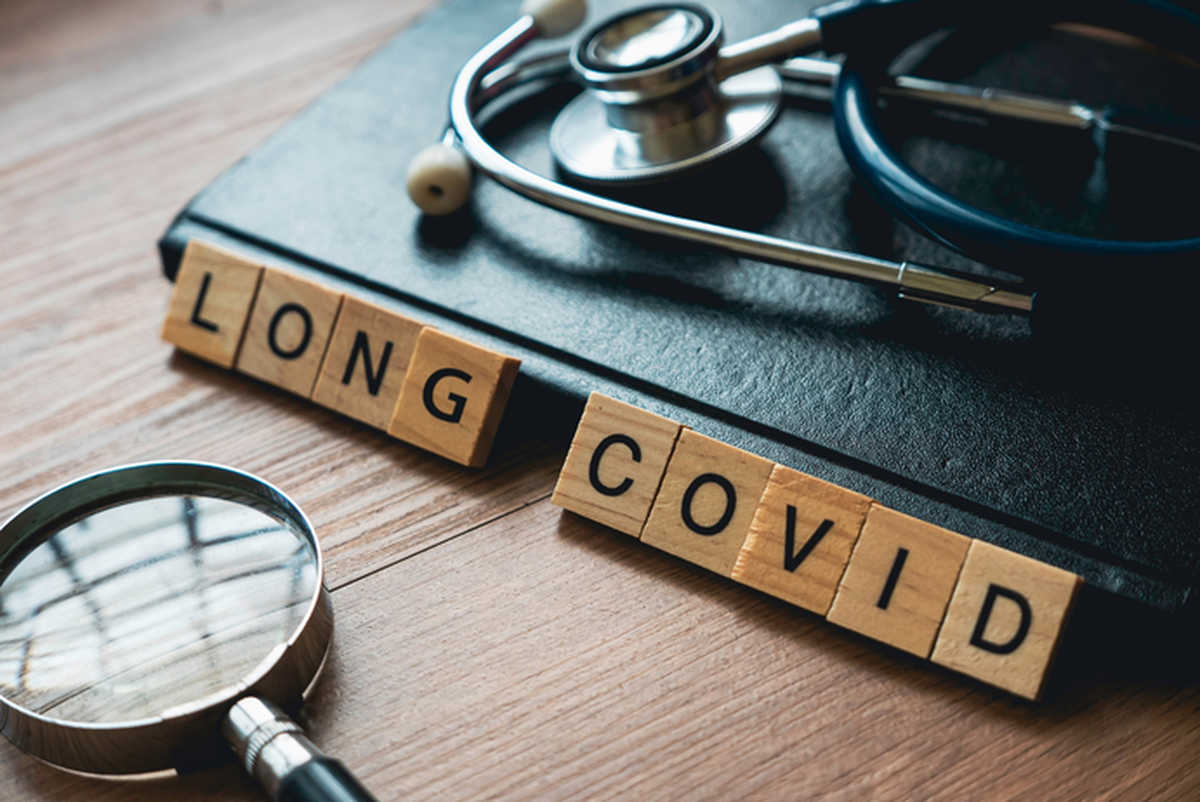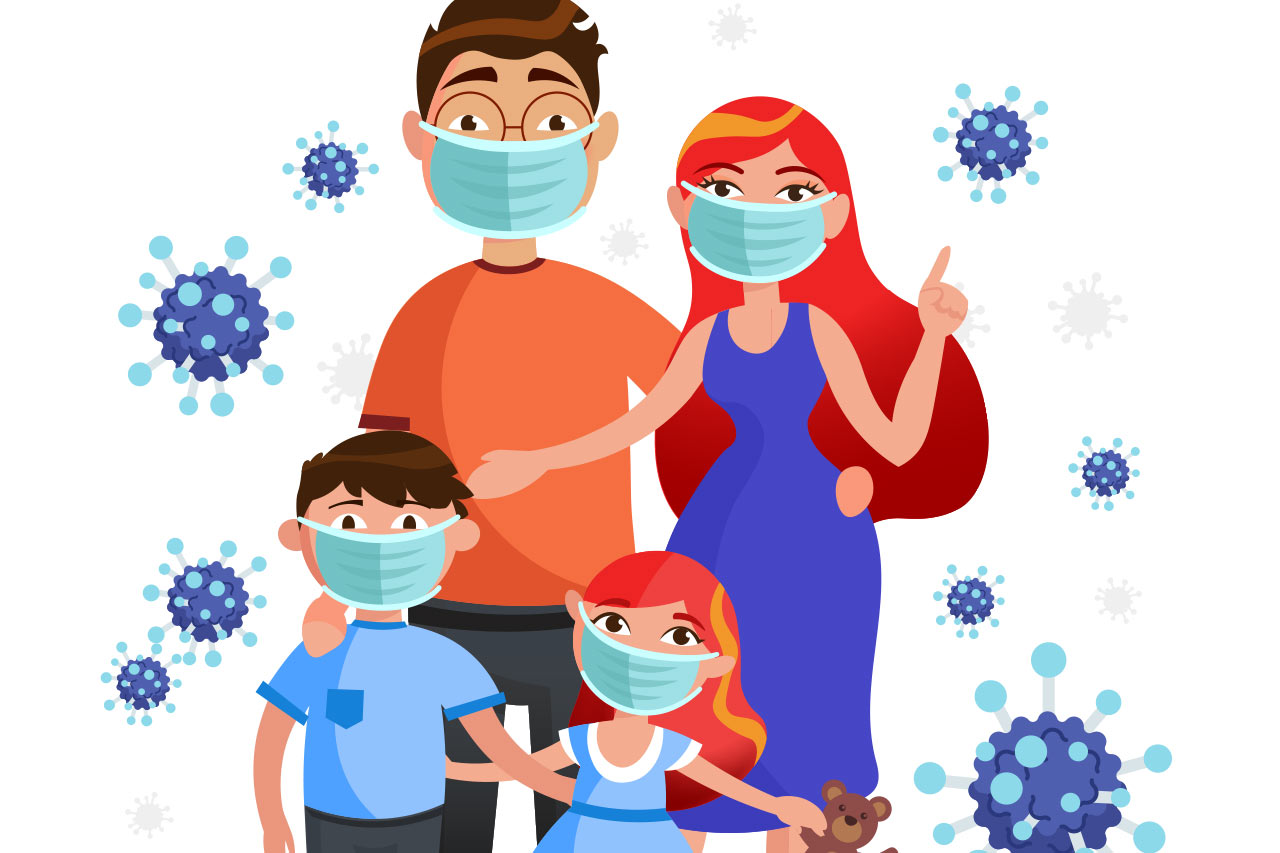COVID-19 infection causes a host of neurological symptoms including anosmia (loss of smell), stroke, delirium, brain inflammation, encephalopathy, primary psychiatric syndromes, and peripheral nerve syndromes. According to the WHO, COVID-19 has sparked a 25% increase in the incidence of major depressive disorder (MDD) and anxiety disorders (AD) worldwide[1]. The onset of such symptoms is not uniform, suggesting there are several pathophysiological mechanisms at play. Cerebrovascular complications, such as stroke, come with or before the onset of respiratory symptoms. However, the onset of peripheral nerve conditions is usually two weeks post-infection, suggesting that these conditions are more likely to result from peri-or postinfectious mechanisms. This would be consistent with the neurological symptoms associated with long COVID such as impaired concentration, headache, sensory disturbances, depression, and even psychosis. While it was initially speculated that COVID-19 may be able to cross the blood-brain barrier to infect the brain directly, viral mRNA and proteins levels in the brain are not frequently detected and when neurons are infected, however rarely, with COVID-19, there is not a classical presentation of encephalitis, as the infected cell is not surrounded by inflammatory cells. Thus, the current evidence points away from direct infection of the brain to immune dysfunction, such as neuroinflammation and antineuronal autoimmune dysregulation. In this article, Alcimed analyses the impact of covid-19 on mental health, and more specifically on depressive and anxiety disorders.
Severe Covid-19 infection is not required for mental health impacts
There is a direct correlation between places highly affected by COVID-19 and increases in MDD and AD. Overall there is 27.6% increase in MDD and 25.6% increase in AD specifically. Notably, women are more affected than men, as found with other long COVID symptoms and COVID-19-induced chronic disease rates. Perhaps even more troubling, the age group most impacted is between 20-24 years old and can occur even in people who had mild acute infections.
Depressive and anxiety disorders due to Covid-19 have wider impacts on society
MDD and AD can be debilitating under normal circumstances and such a rapid expansion in the number of individuals affected is undoubtedly endangering functional capacity in the workforce, given the higher prevalence of COVID-related MDD and AD found in younger working populations. This is especially challenging in low-and middle-income countries that have been majorly affected by increased rates of depressive and anxiety disorders during COVID-19. To put this in perspective an estimated $326.2 B of economic burden is attributed to MDD[2], just in the US, due to loss of work, treatment costs, and suicide-related costs. High rates of undiagnosed patients and lack of general education about MDD underscore that the current burden of MDD is underestimated.
Even in most developed countries, mental health services are unable to keep up with demand, are not included in national health plans, or are overly stigmatized in society preventing their effective use. This has led to greater use of pharmacological solutions over the years such as selective serotonin reuptake inhibitors (SSRI) and serotonin-norepinephrine reuptake inhibitors (SNRIs) which are 1st line therapies. In MDD, current therapies come with burdensome side effects, such as weight gain, sexual dysfunction, and risk of suicidality, and a portion of patients never find an effective treatment among the current options. The same SSRI and SNRIs are used as 1st line therapies for AD as well. MDD and AD are often found together in the same patient along with insomnia, making them difficult conditions to navigate.
The patient pathway in depressive and anxiety disorders is also complex as SSRIs and SNRIs are not fast-acting, creating a large gap between the onset of usage and noticeable improvement, with the condition sometimes getting worse before any improvement is seen. Therefore, patients are rotated on and off therapies to try to find something that will work for their specific case, which often takes months to years leaving the patient with a very low quality of life.
Read also : Covid and life expectancy : why we have yet to see the full impact of the pandemic on Healthcare?
The future of treating depressive and anxiety disorders: a need for something better
There is clearly an urgent need to better understand what drives the pathophysiology of these disorders, whether COVID-related or not, and develop real disease-modifying therapies, to prevent the potential public health crisis coming from this sharp rise in MDD and AD in younger populations.
Current depressive and anxiety disorders drugs are old and there has been little innovation in the field in past years. The SoC, SSRI and SNRI have been FDA-approved for about 30 years and Cymbalta®, the latest antidepressant targeting AD, has been on the market for 15 years.
Rapid onset and a better safety profile are remaining unmet needs for both MDD and AD patients. But on top of that, SSRI and SNRI are not sufficient at relieving depression making MDD an extremely heterogeneous disease with patients never finding an effective treatment. This suggests that new mechanisms of action (MoAs) are the best hope to treat this population of patients.
The current development pipeline for MDD and AD is large and predominated by novel MoAs. There are of dozens of late-stage therapies in development using a wide range of MoA including 5HT receptor agonists, atypical antipsychotics, triple reuptake inhibitors, and novel receptor modulators/agonists. Most candidates aim to be more rapid-acting drugs and have better safety profiles than SSRIs and SNRIs. Those novel MoAs have the potential to be used as monotherapy or as adjunctive therapy and to be the key to relieving patients of the burden of having to cycle through different treatment choices before finding the effective combination for them.
In addition to pharmacological innovation, the digital delivery of cognitive behavioral therapy is under development as an adjunct therapy for both MDD and AD, in addition to the reduction of depression and anxiety symptoms, the behavioral skills mastered through the app may prolong functional periods between depressive episodes and create a more stable higher quality of life for depressive and anxiety disorders sufferers. There are also ongoing trials to understand the role of Bifidobacterium adolescentis probiotics in adults with MDD after evidence suggests that B. adolescentis may have prophylactic anti-depressive effects by rebalancing gut microbiota and reducing inflammatory mediators.
The current drive toward novel MoAs and innovative approaches to cognitive behavioral therapy and the link between the gut microbiome and mood disorders may result in full disruption of the standard of care for MDD and AD in the near future. While this is excellent news for the patients currently underserved by the SSRIs and SNRIs, such disruption will not automatically relieve the stigma that keeps people from seeking mental health treatment, increase the level of mental health services offered, or expand the number of mental health services and treatments covered under healthcare plans. Therefore, the depressive and anxiety disorders patient pathways from diagnosis to long-term treatment deserve a higher level of focus to prevent the increased incidence of COVID-19-induced MDD and AD from overstaining the healthcare system. We at Alcimed will continue to monitor innovation in the mental health space and are happy to help you with all your mental health explorations. We can support you in your projects related to mental health disorders and patient pathways. Don’t hesitate to contact our team!
[1] World Health Organization (2022). https://www.who.int/news/item/02-03-2022-covid-19-pandemic-triggers-25-increase-in-prevalence-of-anxiety-and-depression-worldwide
[2] Bauer et al. (2013). World Federation of Societies of Biological Psychiatry. https://doi.org/10.3109/15622975.2013.804195
About the author,
Julie, Healthcare Consultant in the Healthcare Alcimed’s team in the U.S.
Danna, Great Explorer in Infectiology and immunology, in the Healthcare Alcimed’s team in the U.S.



